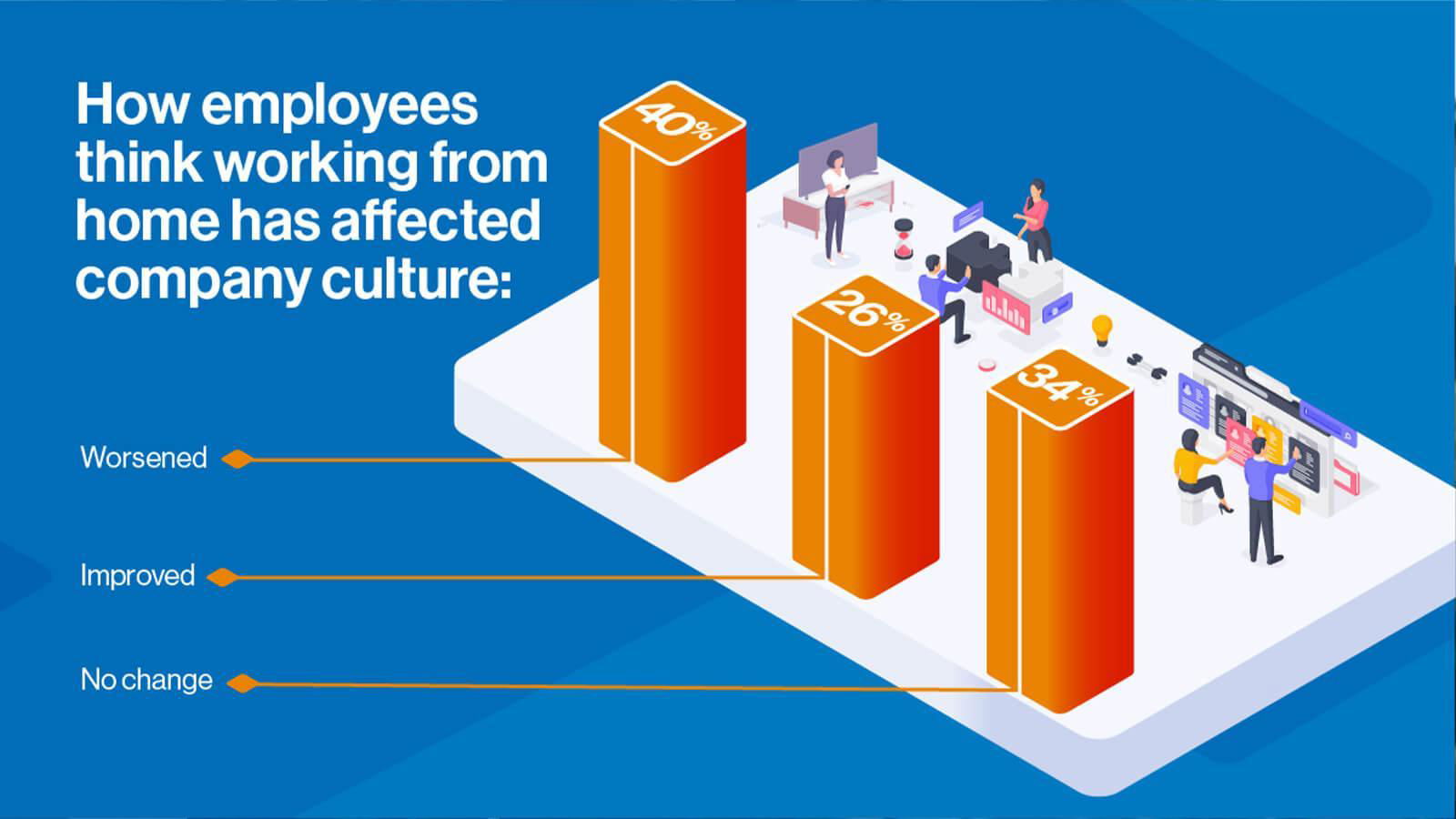share on
This is compared to 26% who believe it has improved the culture, and more than three in 10 (34%) who believe it has made no change.
Working from home has proven to be both a boon and a bane for companies around the world - in how it impacts company cultures, employee engagement, and more.
In fact, of 1,000 employees surveyed by in the UK recently, a majority believed that working from home has permanently changed the way of work.
Note: *While this survey was conducted in the UK, HRO believes the findings may still resonate with our readers in Asia.
In particular, about four in 10 (41%) said they would like to work from home for two to three days a week, while 23% would prefer full-time remote working; 13% would want a rotation system, and less than one in 10 (9%) would want to work from home once a week.
On the other hand, 13% would like to see a full-time return to the office.
Importantly, the survey also revealed the impact of working from home on company culture - with four in 10 employees believed it worsened their company culture, compared to 26% of employees who believed it improved the culture, and 34% who believed it made no change.
Most common challenges faced working from home
Apart from the above, the survey noted that of all challenges facing employees while working from home, the biggest issue is being distracted by friends and family (21%), while staying focused (18%) and social isolation (16%) were also cited as causing problems.
The lack of a dedicated home workspace setup has also emerged as a "major" issue - although 34% of employees said they worked from an office room. 44% carried out their duties at a dining room or kitchen table, while 16% and 8% worked on a sofa and a bed, respectively.
The survey also found the following:
- Six in 10 employees (60%) said they were more productive working from home, with 61% saying they were productive for more than six hours a day.
- More than half (53%) of these employees said working from home has resulted in working longer hours.
- While this was so, 59% of employees also stated they take more breaks when working from home.
- Above all, 41% of employees noted that socialising with colleagues was what they missed most about working in the office; while more than one in five (21%) said it working from home has impacted their mental health.
With all of the above in mind, a number of employees (40%) still felt that with work-from-home in place, their company may no longer require a physical office. Interestingly, close to seven in 10 (65%) said they would be comfortable starting a new role remotely.
share on


